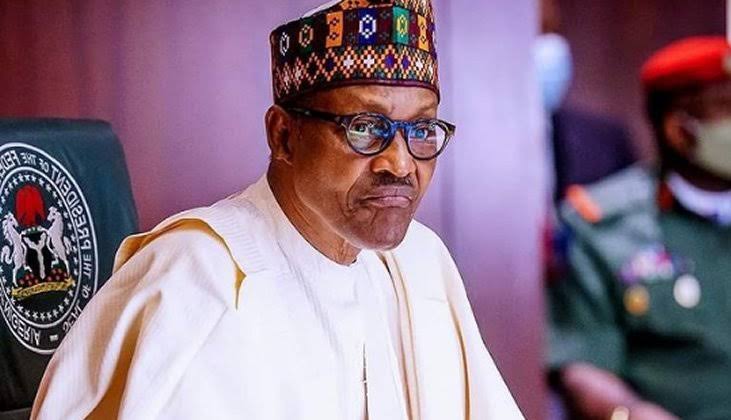Africa
Baba Buhari: The Leader We Lost -By Abubakar Musa Idris
In infrastructure, we saw roads, rails, and power projects long spoken about finally begin to materialize. You didn’t need a policy paper to understand it—you just had to look outside your window. But what stayed with me most was his integrity. In a land where power often corrupts, Baba remained astonishingly simple. No long convoys, no palatial estates.

I will never forget the 2015 elections. The chants of “Sai Baba!” were everywhere. We had fallen in love with a man. To us, he wasn’t just Muhammadu Buhari—he was Baba, the man who had captured the imagination of a weary nation.
In those moments, Nigerians didn’t just vote for a candidate; they believed in a symbol, a promise that something better was possible. As the election results came in, I sat glued to the television, pen and paper in hand.
Each state collation felt like history unfolding. There was electricity in the air—a kind of national awakening. It wasn’t just that we were watching a man become president; it was the quiet miracle of a peaceful democratic transition. We believed we were witnessing the rebirth of our nation.
Baba had his flaws, like every human being. But I will never forget what he did for agriculture, for infrastructure, and most especially for security. As a son of Yobe, I saw firsthand the fear that once gripped our people—the empty markets, the shuttered schools, the silence that replaced the sound of daily life.
But I also saw how things slowly began to change. Soldiers came. Communities began to breathe again. It wasn’t perfect, but it was something. It was hope. In agriculture, the Anchor Borrowers’ Programme lifted countless farmers. The vision of feeding ourselves, of restoring dignity to rural life, started to take root.
In infrastructure, we saw roads, rails, and power projects long spoken about finally begin to materialize. You didn’t need a policy paper to understand it—you just had to look outside your window. But what stayed with me most was his integrity. In a land where power often corrupts, Baba remained astonishingly simple. No long convoys, no palatial estates.
Just his home in Daura, another in Kaduna, and a reputation built not on wealth, but on character. He reminded us that leadership doesn’t have to be loud or luxurious to be meaningful. Now that he’s gone, we mourn not just a man, but an era. Baba showed us that leadership could be humble, disciplined, and deeply patriotic.
He may have left Aso Rock, but his footprints remain in our fields, our roads, our memory. May Allah forgive his shortcomings and grant him al-jannah firdaus. Nigeria will never forget Sai Baba.
























